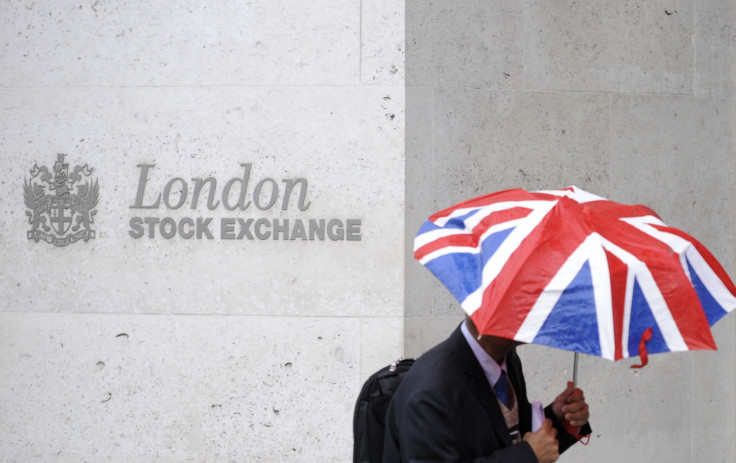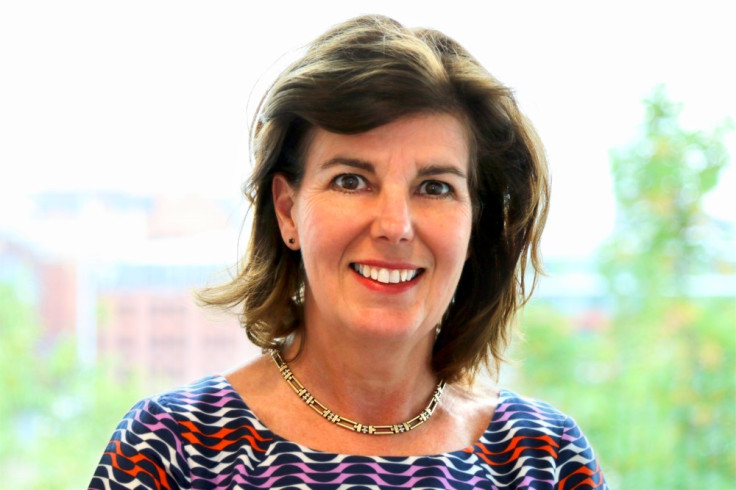Keep the faith in income generative UK equities, says veteran market commentator
TD Direct Investing CIO Michelle McGrade feels investors looking at long-term equity market returns should explore banks.

In an era of perennially low interest rates, individual investors ought to be turning to the equity market for income. That's according to Michelle McGrade, chief investment officer of TD Direct Investing, the UK brokerage arm of Canada's TD Waterhouse bank.
Speaking to IBTimes UK, McGrade – an industry veteran of over three decades – says that prudent investment, with a long-term view, ought to be the order of the day for private investors in the current climate.
"Equity markets are risky as they go up and down and often have to contend with the kind of volatility a shock like the Brexit vote brings with it. The worst possible thing investors can do is enter the market when they are feeling good and prices are high, and sell when they are feeling jittery and the market is at the bottom."
Playing the equities market is almost as much about holding your nerve as it is about getting tangible returns, McGrade adds. "Between January 2008 and February 2009, when global market turmoil was in full swing, the FTSE All-Share Index was down 38% at the beginning of February. At that point in time, people who held their nerve and bought strategically would have received a return of 138% by end of 2015."
"Furthermore, from 2005 to 2015, the FTSE all share rose 43%. My point is that people should invest in equities but take emotion out of it. There is probably never a good time to buy, but never sell when the markets are negative."
The TD Direct CIO says investors should seek out disruptors, innovators and sustainability stalwarts within UK plc.
"Those seeking returns could do a bottom-up examination of companies as diverse as engineering and scientific technology outfit Renishaw to boutique tonic water manufacturer Fever Tree Drinks – both disruptors in their own fields for established players in the arena."
Venturing to sectors, banks, industrials and housebuilders find favour with McGrade. "If you have patience banks are a good sector to buy. Diversified players like HSBC, Standard Chartered and Lloyds are expected to do well, while RBS and Barclays will take time to bounce back.
"UK banks are well-capitalised. At some stage their offering would be very attractive, especially as I don't consider the Brexit vote to be as seismic an event for the banks as the global financial crisis was."

The same applies to housebuilders. "Kneejerk reaction to housebuilders' shares the morning after Brexit was astounding, with people failing to hold their nerve. When it comes to UK housing stock, there is more demand than supply, so those housebuilders with a well-diversified portfolio will continue to do well."
Away from equities, McGrade is nonplussed with the gold rush. "I just don't get it. Gold doesn't pay you a dividend and it has no earning potential. If, as expected, US interest rates rise, you could see sharp falls in the value of gold. So my advice is, by all means invest in gold, but allocate no more than 5-10% of your investing spend in it."
The former Bank of Bermuda, Coutts, Northern Trust, Investment Solutions and Mediolanum expert also described the Bank of England's decision to cut interest rates as the "wrong move" and "a silly kneejerk reaction".
"Only the bond managers are sitting around licking their lips. Companies holding cash for targeted investment are getting fewer returns, savers feel perennially squeezed and man on the street didn't notice a tangible difference.
"The Bank should have let the Brexit vote dust settle, something that Prime Minister Theresa May is belatedly attempting by cooling all talk of a rush towards triggering Article 50 and our exit from the EU."
Furthermore, McGrade says if history is anything to go by, bad practices of the past might return when people see zero-yields on riskless assets.
"Some of those dubious practices and products the financial sector was criticised for during the global financial crisis are coming back. It brings you back to the question why are interest rates so low? When you can't get any yield on your riskless assets, then of course you are going to have people trying to work out ways to be clever and seek higher returns."
Finally, the TD Direct CIO feels a glass half-full attitude is required post-Brexit. "I expect export-oriented UK businesses to continue to do well, and the pound is likely to stay at or above $1.30.
"I think you need to be careful about investing overseas right now unless you in a hedged share class. I am quite keen on emerging markets, especially emerging Asian economies that are good diversifiers, but I've kept the faith in the UK market."
© Copyright IBTimes 2025. All rights reserved.



















